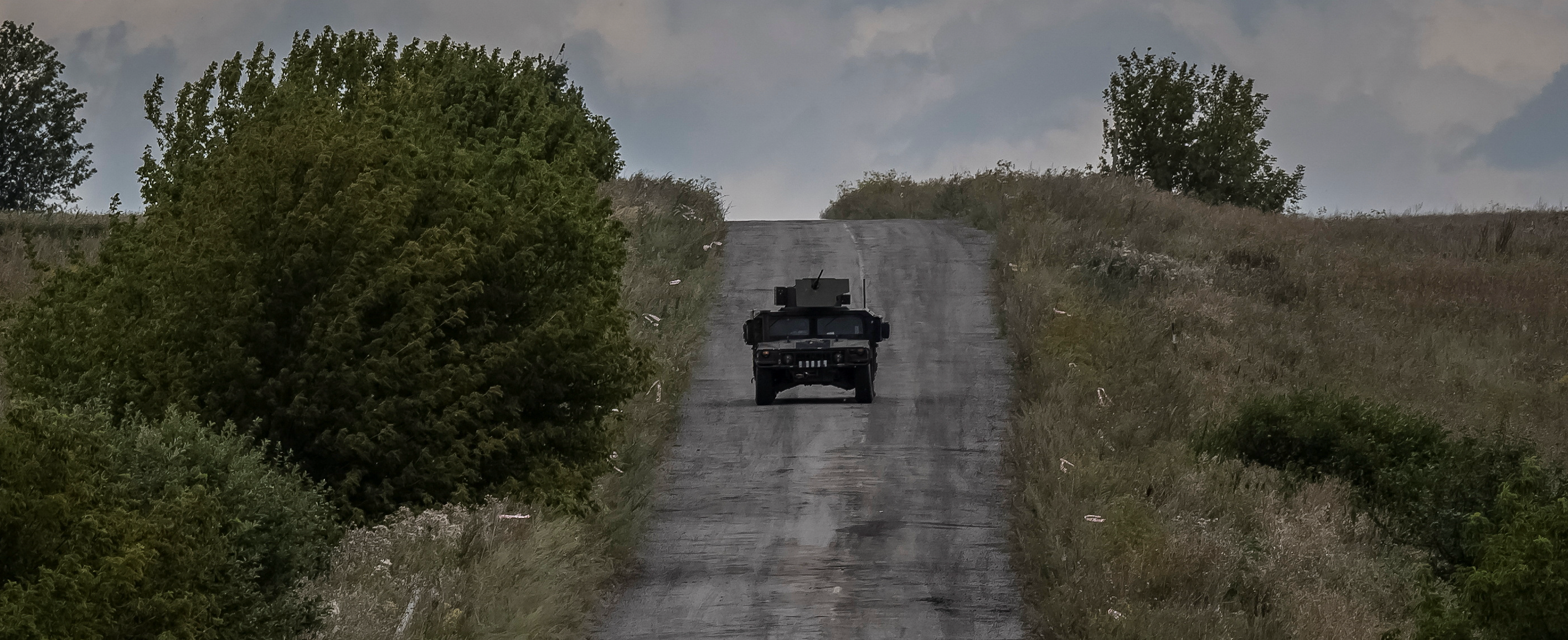
Russia evacuates another border region amid increased Ukrainian troop activity
PHOTO CAPTION: Ukrainian servicemen ride a military vehicle, amid Russia's attack on Ukraine, near the Russian border in Sumy region, Ukraine August 11, 2024. REUTERS/Viacheslav Ratynskyi
By Guy Faulconbridge and Lidia Kelly
MOSCOW (Reuters) -Russia on Monday evacuated civilians from parts of a second region next to Ukraine after Kyiv increased military activity near the border just days after its biggest incursion into sovereign Russian territory since the start of the 2022 war.
Ukrainian forces rammed through the Russian border last Tuesday and swept across some western parts of Russia's Kursk region, a surprise attack that may be aimed at gaining leverage in possible ceasefire talks after the U.S. election in November.
Apparently caught by surprise, Russia by Sunday had stabilised the front in the Kursk region, though Ukraine had carved out a sliver of Russian territory where battles were continuing on Monday, according to Russian war bloggers.
In the neighbouring Belgorod region to the south, regional governor Vyacheslav Gladkov said evacuations had begun from the Krasnaya Yaruga District due to "enemy activity on the border".
Russia's TASS state news agency said 11,000 people had been evacuated from the Krasnaya Yaruga District alone, and Russian state television showed footage of volunteers helping civilians leave and bringing in supplies from across the country.
Russia's defence ministry said its troops had repelled multiple attacks by Ukrainian forces in at least eight different locations in the Kursk region.
The ministry reported intense battles in Kursk region with aviation, artillery, drones and ground forces, including reserves, against Ukraine's 22nd, 61st and 115th mechanised brigades. Ukraine has lost 32 tanks in the area, it said.
Russia has imposed tight security in the Kursk, Bryansk and Belgorod regions while its ally Belarus said it was bolstering its troop numbers at its border after Minsk said Ukraine had violated its airspace with drones.
Russian officials say Ukraine's attacks on Russian sovereign territory are aimed at showing its Western supporters that Kyiv can still muster major military operations while trying to gain a bargaining chip ahead of possible ceasefire talks.
Russia invaded Ukraine in February 2022 and now controls 18% of Ukrainian territory. Russian forces, which have a vast numerical supremacy, have been advancing this year along the 1,000-km (620-mile) front after the failure of Ukraine's 2023 counteroffensive to make any major gains.
Kyiv broke its silence on the attacks on Saturday when President Volodymyr Zelenskiy said Ukraine had launched an incursion into Russian territory to "restore justice" and pressure Moscow's forces.
At the Zaporizhzhia nuclear power plant, in a part of Ukraine controlled by Russian forces, a major fire broke out.
GAS HUB
The Ukrainian attack has prompted some in Moscow to question why Ukraine was able to pierce the Kursk region so easily after more than two years of the most intense land war in Europe since World War Two.
Russian war bloggers said Ukrainian forces in Kursk were trying to encircle Sudzha, where Russian natural gas flows into Ukraine, while major battles were underway near Korenevo, about 22 km (14 miles) from the border, and Martynovka.
"The situation on the borders of the western Belgorod region is alarming," said Yuri Podolyaka, an influential pro-Russian military blogger, adding that Ukraine was probing the border at several places.
"The enemy has three fairly large groupings here."
Since the Aug. 6 border incursion into Kursk, the Russian rouble has weakened, losing 6% of its value against the U.S. dollar. Russia's Gazprom said it would send 39.6 million cubic metres (mcm) of gas to Europe via Ukraine on Monday.
Though the United States said it had not been told of the Ukrainian operation before it was unleashed, there were signs in Moscow that the attack would provoke a response from Russia.
"We have no doubt that the organisers and perpetrators of these crimes, including their foreign curators, will bear responsibility for them," said Maria Zakharova, spokeswoman for the Russian Foreign Ministry.
"A tough response from the Russian Armed Forces will not take long."
(Reporting by Lidia Kelly in Melbourne and Guy Faulconbridge in Moscow; Editing by Lincoln Feast, Angus MacSwan and Crispian Balmer)









